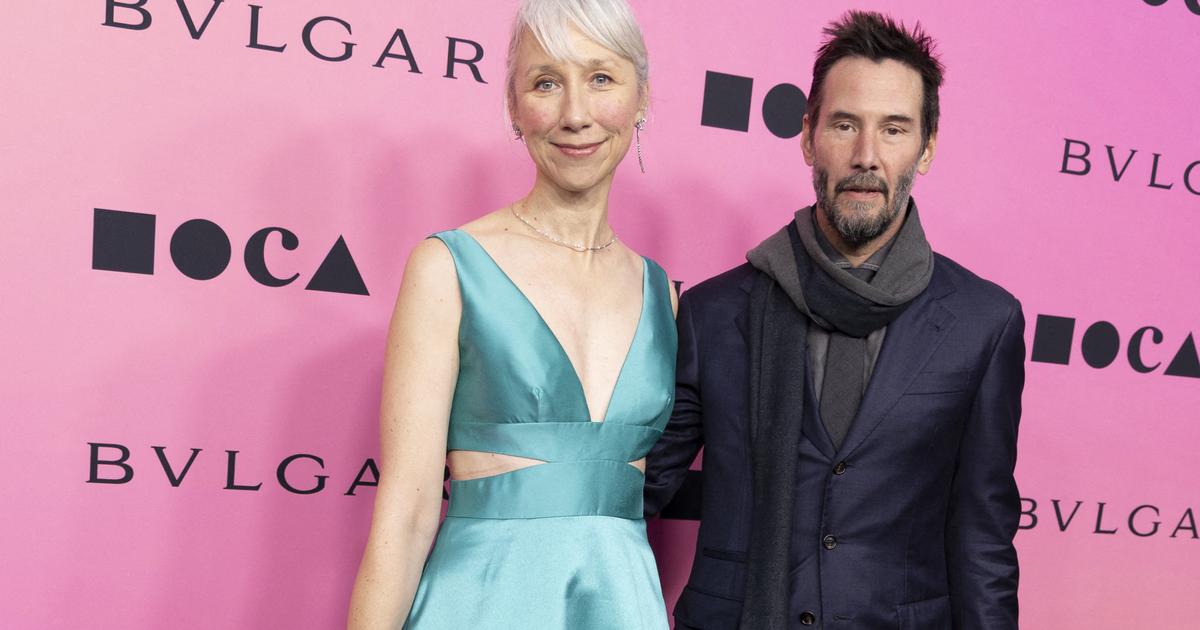Enlarge image
Alexander Scheer and Meltem Kaptan in Andreas Dresen's competition entry »Rabiye Kurnaz against George W. Bush«
Photo: HOEAN / Andreas Hoefer / Pandora Film
It has been clear for a week that the Berlinale can take place in person, albeit with a shorter timeframe and reduced capacity due to the pandemic. As if freed from uncertainties, although Federal Minister of Health Lauterbach predicts the peak of the current wave of infections to be in the middle of the festival, the festival has since announced which films will be shown between February 10th and 20th. Compared to the last pre-pandemic edition, there will be significantly fewer: a total of 256 short and long films were selected this time. In 2020 there were around a hundred more films.
The management duo Mariette Rissenbeek and Carlo Chatrian announced these figures on Wednesday morning. However, the most important part of their online press conference was to unveil the program for the two competitive series, for the competition and the »Encounters« series.
18 films from 15 countries will be in the running for the bears, 17 of which are world premieres. Only »Call Jane«, the directorial debut of the acclaimed American screenwriter Phyllis Nagys (»Carol«), will be shown first in Sundance. Nagy's historical abortion drama is one of a total of seven films by women. After »Wild«, Nicolette Krebitz is showing her new film »AEIO – the fast alphabet of love« with Sophie Rois in the competition. There is also a love drama by Claire Denis, who was once again able to win Juliette Binoche for the leading role, the long-awaited new film by the Swiss director Ursula Meier and the second feature film by the Catalan director Carla Simón, who had a surprise hit with "Frida's Summer" in 2017.
The competition program will be supplemented by regular Berlinale guests and award winners Denis Côté, Hong Sang-soo and Paolo Taviani, the latter alone in the director's chair for the first time since the death of his brother Vittorio. Ulrich Seidl's film »Rimini«, which has been in the works for some time, can be seen, while Michael Koch shows his second directorial work »Drii Winter« after his remarkable debut, the migration drama »Marija«.
In addition to Nicolette Krebitz, Andreas Dresen is contributing the second film from Germany. After his public success »Gundermann«, he worked again with actor Alexander Scheer and screenwriter Laila Stiehler. In »Rabiye Kurnaz vs. George W. Bush«, they tell the story of the mother of Guantánamo prisoner Murat Kurnaz and her fight against her son's arbitrary imprisonment. Meltem Kaptan makes her film debut as Rabiye Kurnaz, Scheer plays the lawyer who takes her to the US Constitutional Court.
In the »Encounters« section, which was created by the management duo Carlo Chatrian and Mariette Rissenbeek when they took office in 2020 and is intended to include more experimental works, this time established filmmakers such as Bertrand Bonello and Peter Strickland are showing new films. After »The Dreamed Ones«, the Austrian Ruth Beckermann presents a new hybrid work of game and documentary elements. Cyril Schäublin complements Switzerland's strong presence this year with »Unrueh«.
It is not yet clear who will award the prizes in the two rows. Only M. Night Shyamalan has been announced as President of the international jury that decides on the bear award. This year's Berlinale has been shortened to a six-day instead of ten-day regular festival, and the awards are to be announced on February 16th. Reruns will then be shown on four public days instead of the previous one. François Ozon's Fassbinder homage »Peter von Kant« has already been announced as the opening film.
Last year, the Berlinale was divided into two, an online industry event and a "Summer Berlinale" that took place in person.
Chatrian explained the decision to stick to presence this time: »A festival like the Berlinale can only exist under certain conditions.
It's not about enforcing one modus operandi (in person) against another (online), but about appearing as the protector of a space that is in danger of disappearing.«
hpi














